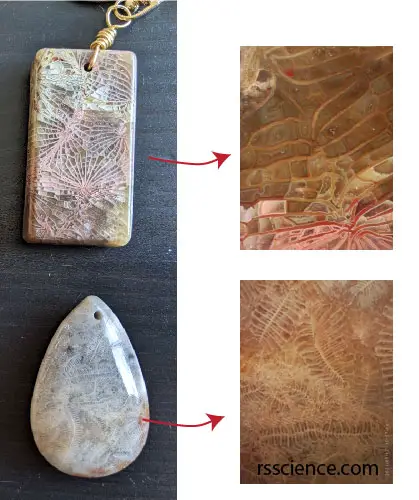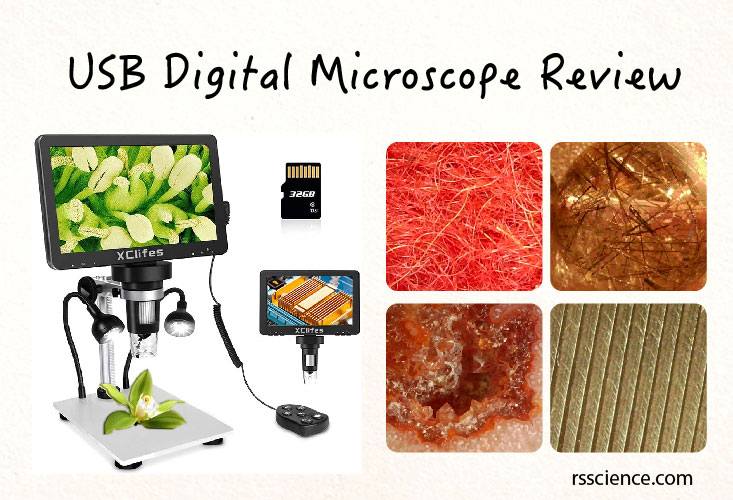This article covers
What is a digital microscope
Digital USB microscopes are popular. They are easy to use and purchase. You can see many kinds from many companies on Amazon.
Functionally, digital microscopes are similar to stereo microscopes, ideal to view 3D objects. The difference is that a digital microscope uses electronic sensors to catch the image instead of lenses or optical components, making it more affordable and easier to maintain. The image can be shown on the screen of your smartphone that is connected to the microscope by USB wire, WiFi, or Bluetooth.
Advantage
- Affordable compare to the optical microscope
- Easy to use
- Easy to carry, can be portable
Disadvantage
- Image quality is not as good as the optical microscope
- Not easy to focus
I bought XClifes LCD Digital USB Microscope
I love agatized fossil coral, and I have a huge collection. So the first thing I want to look at under my new digital microscopes is agatized fossil coral.
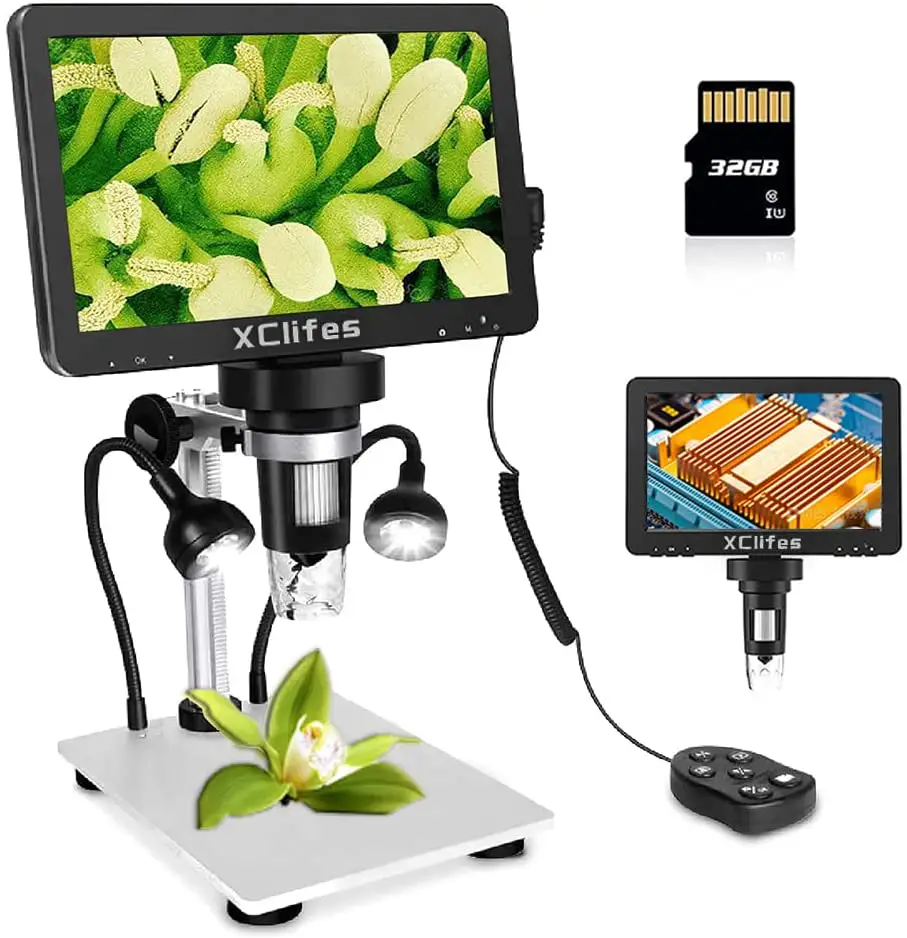
Sample 1: Agatized fossil coral
Below are 6 pendants I looked at under the digital microscope. Each of them has different patterns and colors. Let’s see what they look like under the digital microscope I bought.
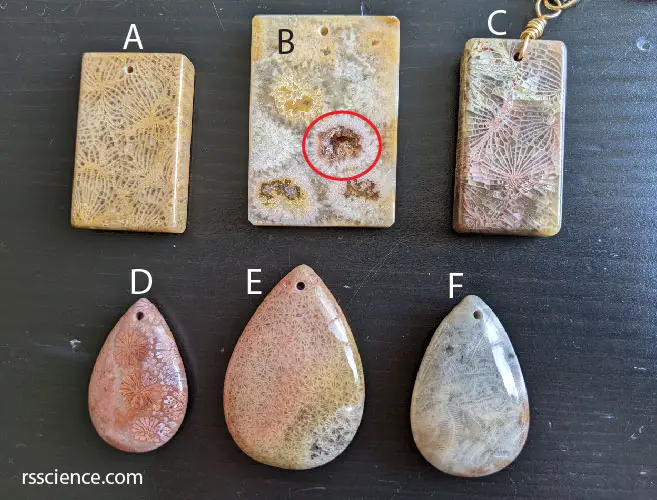
A pendant is yellow with a bird tail-like pattern. Under the digital microscope, each little space looks shiny because there are lots of crystals in it.
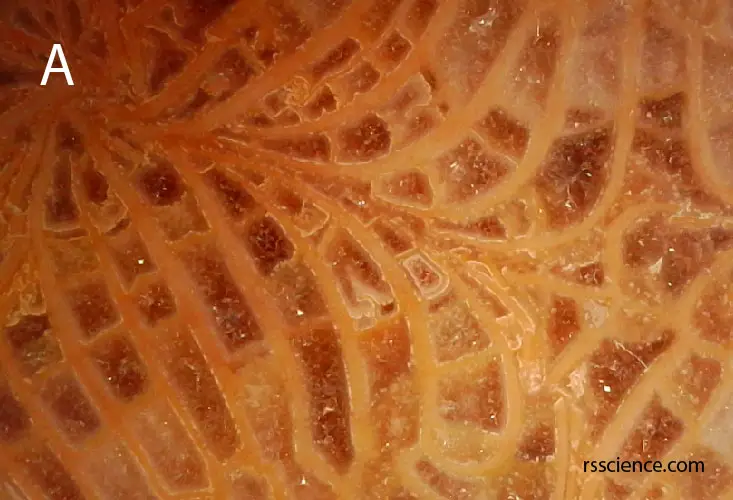
B pendant is yellow with many crystal holes. I particularly focus on looking at the crystal holes (highlighted with a red circle). These little pointed crystals grow from the hole. They look amazingly beautiful.
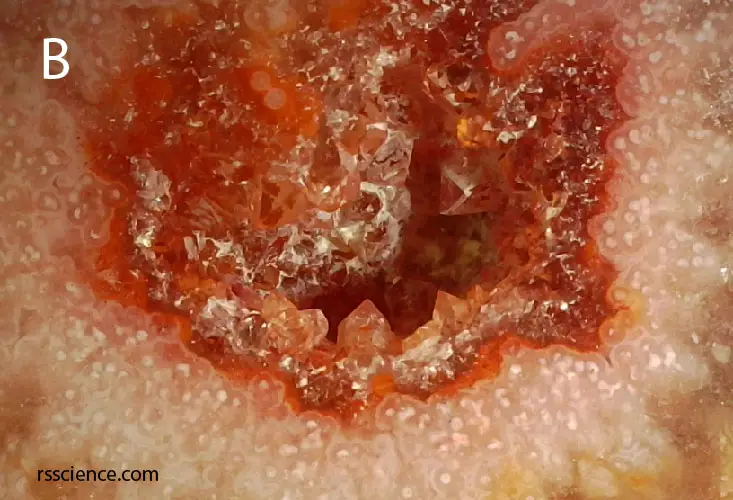
C pendant is greenish with a bird tail-like pattern.
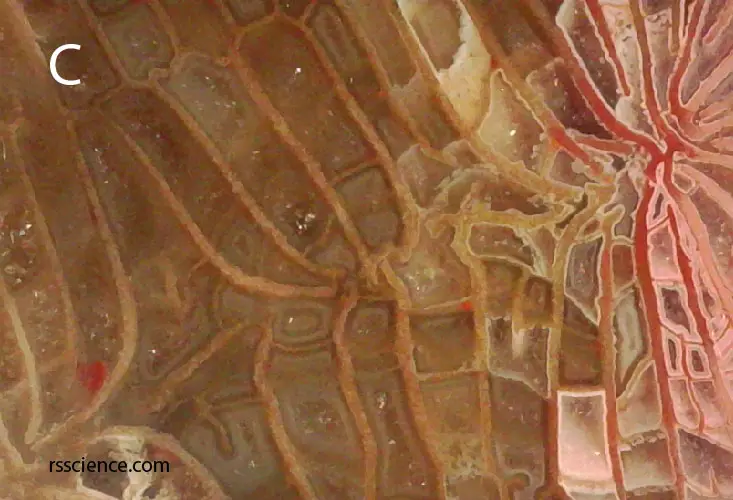
D pendant is red with a daisy flower pattern. Under the digital microscope, you can clearly see the organization of daisy petals. So pretty.
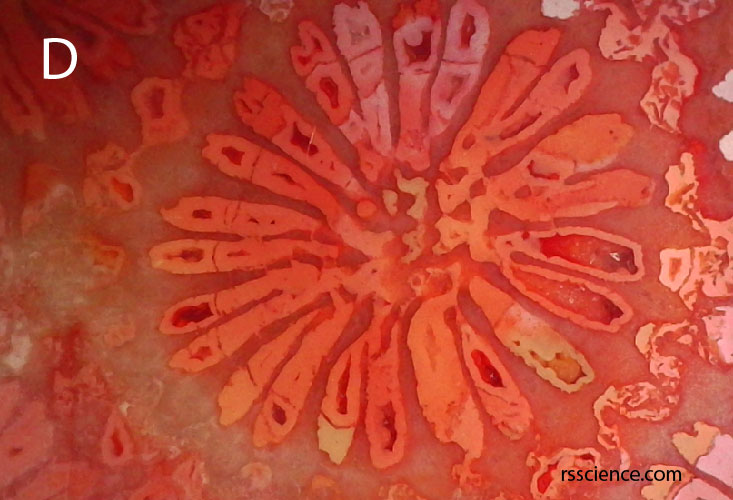
E pendant is pink with a smaller daisy flower pattern. It’s hard to see its pattern without magnification. Under the digital microscope, you can see tons of daisy flowers.
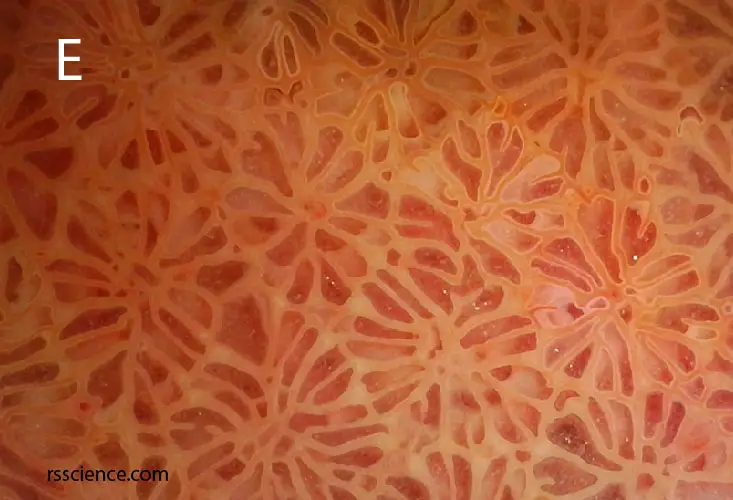
F pendant is grey with a coral worm pattern. It’s also hard to see its pattern without magnification. Under the digital microscope, you can see the pattern clearly. They look like worms or sea fans. However, they are agatized fossil coral.
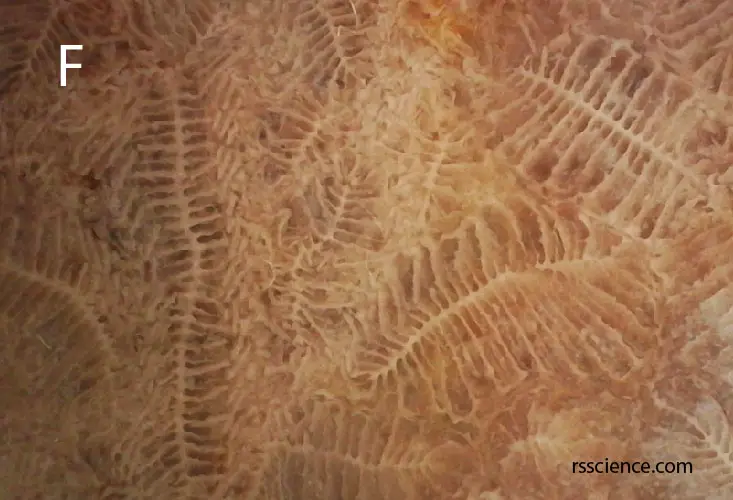
Sample 2: Black rutilated quartz beads
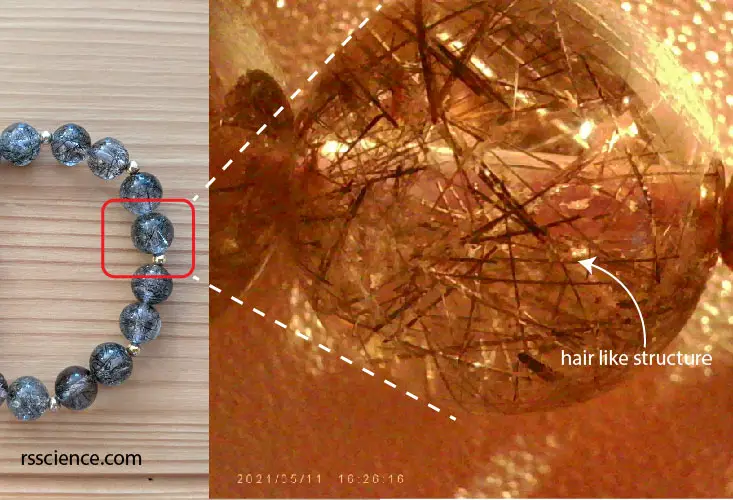
Sample 3: Bird feather
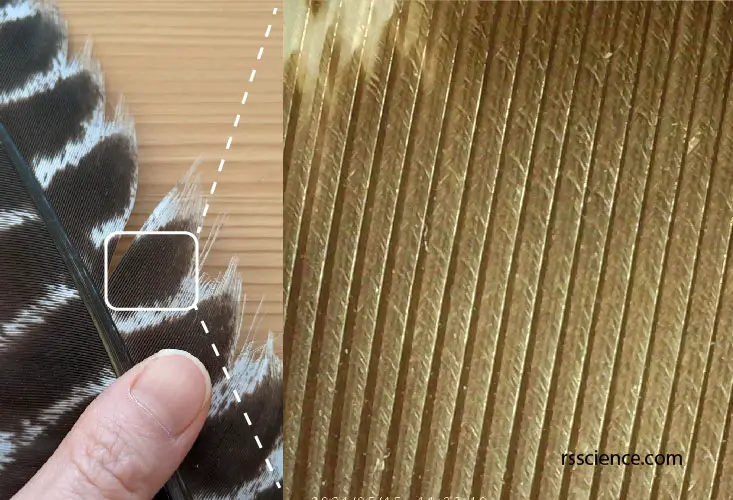
Sample 4: Dry flower
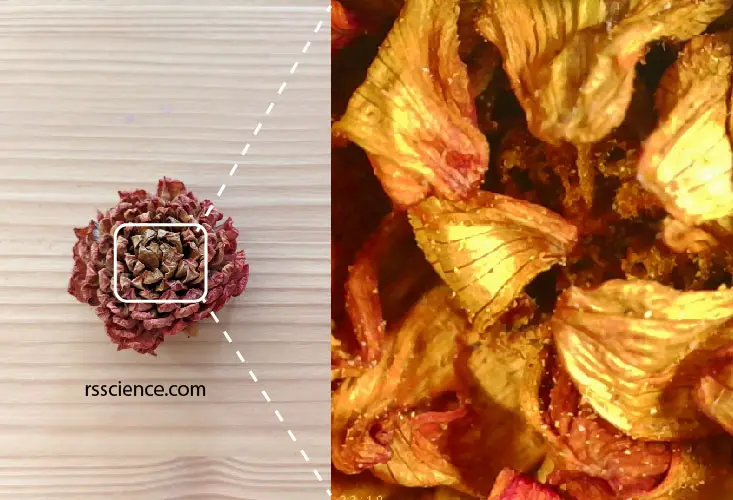
Sample 5: Felting wool
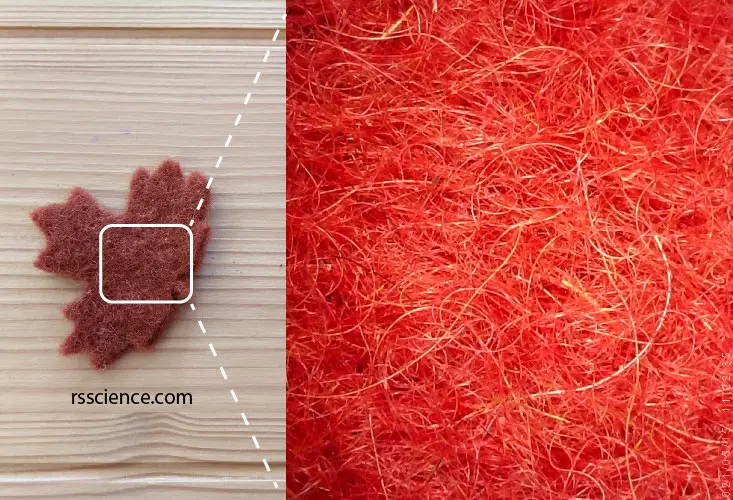
Sample 6: Words on the print
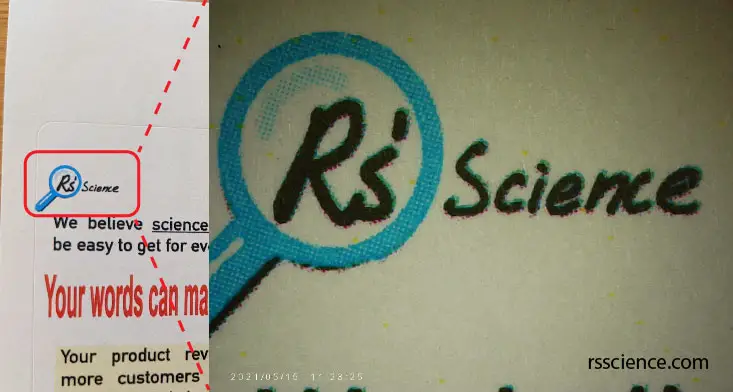
Pros of XClifes LCD Digital USB Microscope
1. Easy to use
The microscope itself is connected to a big 7-inch screen, so you can use it right away. No need to connect to another screen such as a cell phone or a computer.
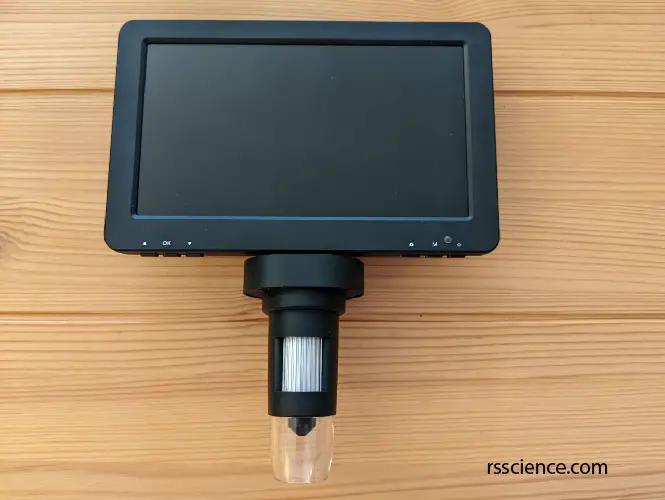
2. Have a remote control to take pictures
The remote control is really helpful, especially when you take pictures, providing stable image shooting. It also allows you to switch image resolution settings without touching the screen, so you don’t have to worry about changing the field that you are imaging.
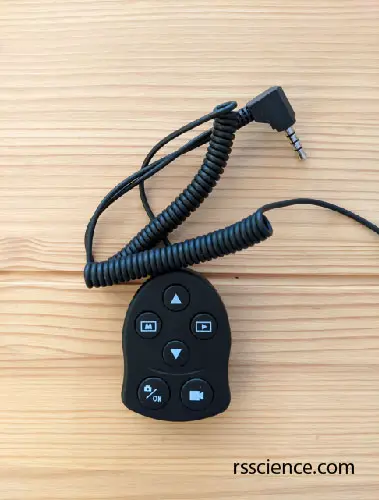
3. Wide range of magnification 1-2000x
Because it has a wide range of magnification 1-2000x, you can see the detail of the object clearly.
4. Four different Image resolutions
5M, 8M, 10M and 12M
Cons of XClifes LCD Digital USB Microscope
1. Instruction is poor
The instruction that comes with the microscope is poor. The amazon listing actually provides more information.
2. Software is hard to use
The box comes with a small disc and a reflector. My computer and laptop don’t have a CD reader! Which era are we in? It is useless. The reflector does not fit the microscope either. They also provide a website to download the HiView software. The website is not HTTP secure.
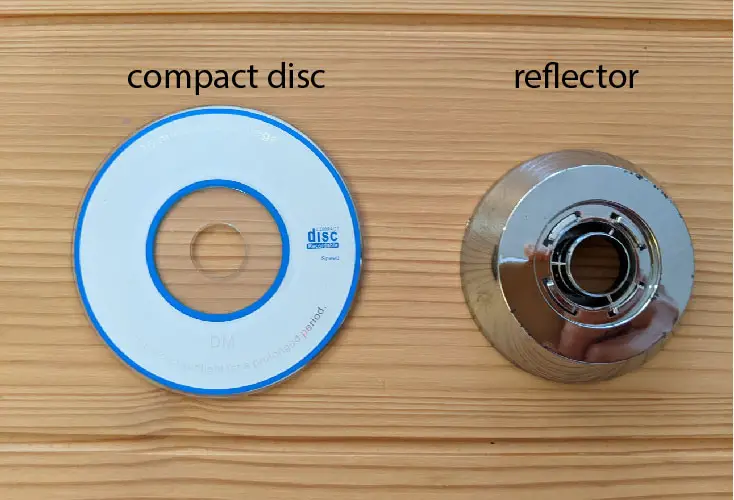
After I downloaded and opened the software, I cannot see the live image. No image is displayed. The instruction says ” If the image cannot be displayed, select the device name in item2 and select USB video device, then select item 3 options and select Preview to display the image.” Can anyone tell me where is item 2 and item 3? No idea!
After spending a half-hour struggling, I decide not to use the software.
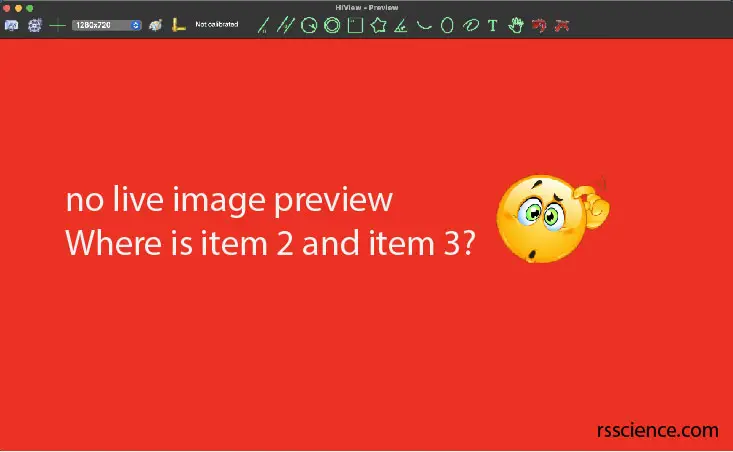
[In this image] The HiView software preview.
3. Can not see the image after taking the picture, need to connect to a computer to see it
You have to connect the microscope to the computer to see the images you took. It is not very convenient for documentation.
4. No idea of magnification
I have no idea how much is the magnification of each image I took or while I am viewing.
5. The color of the image does not reflect the real color
The color of the image is not the same as the color of the sample. As you can see the image below, the upper sample is green, and the bottom sample is grey. However, after taking the picture, the upper image is yellowish green, and the lower image looks yellow. Everything looks yellow!
